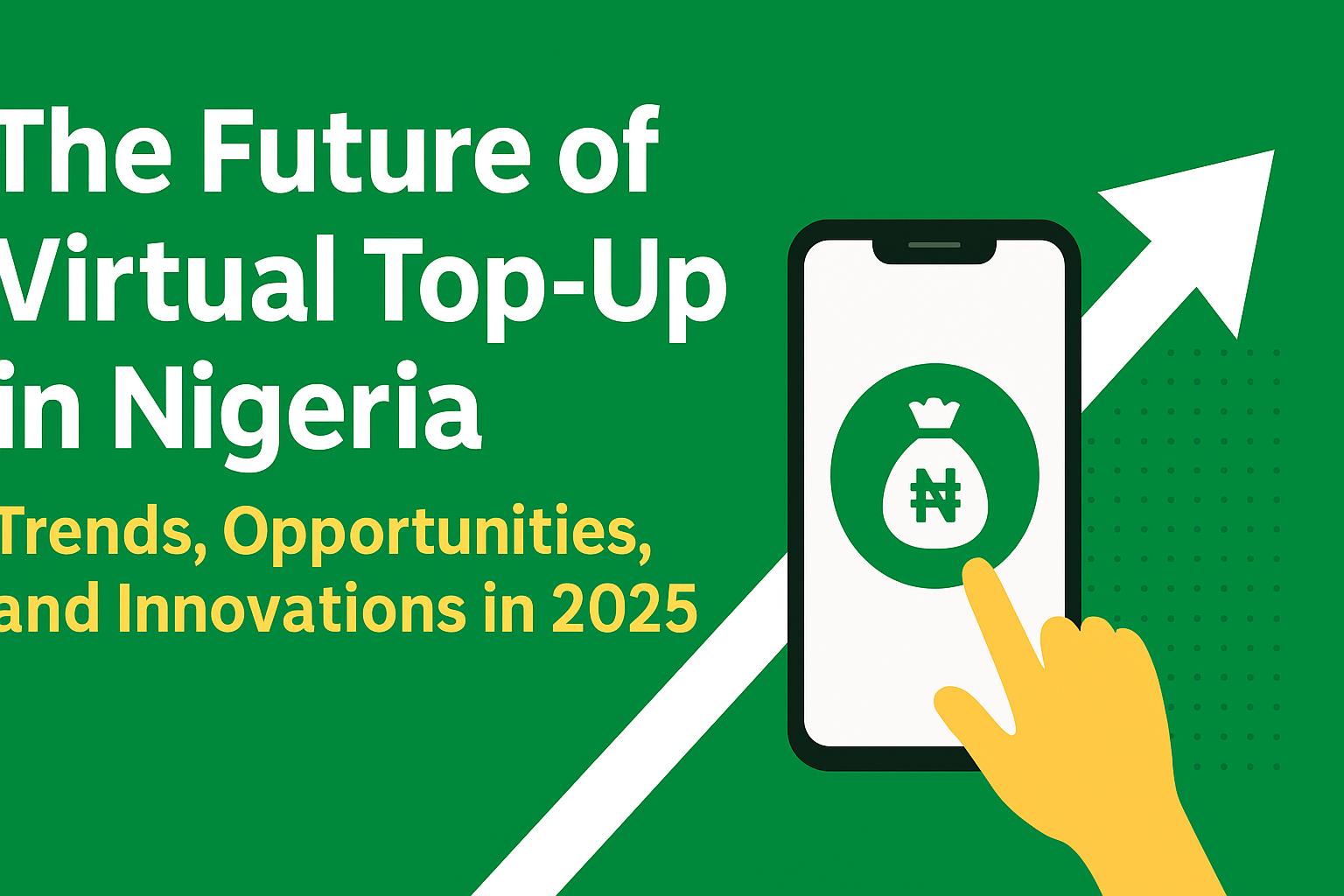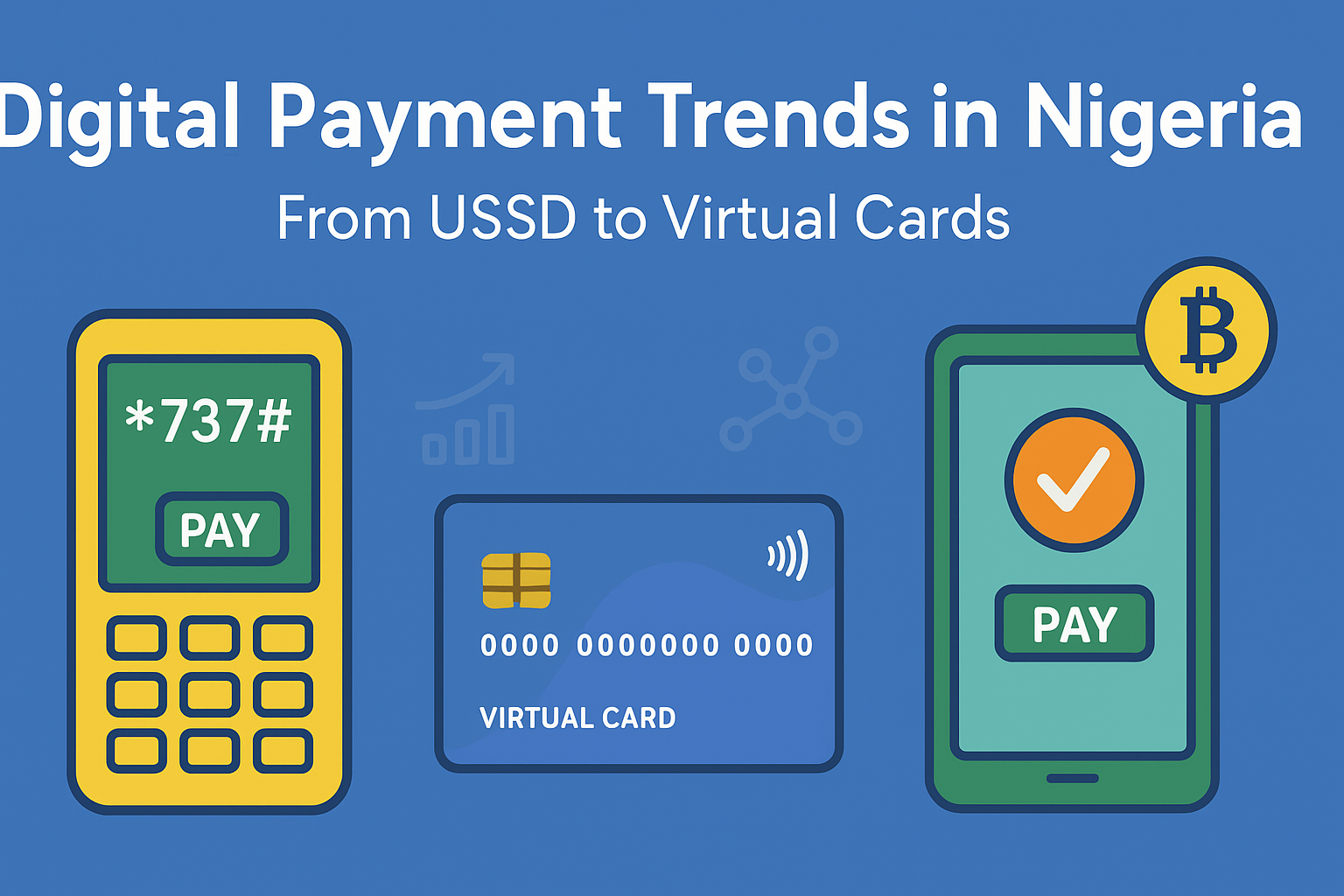The Future of Virtual Top-Up in Nigeria: Trends, Opportunities, and Innovations in 2025
Introduction: The Digital Evolution of Virtual Top-Up
The rise of virtual top-ups marks a new era in financial technology, offering users an easy and secure way to add funds to prepaid accounts. Whether it’s mobile airtime, internet data, or digital wallets, virtual top-up systems eliminate the need for physical cash or bank visits — allowing instant transactions anytime, anywhere.
In simple terms, a virtual top-up enables users to electronically recharge their prepaid accounts through digital platforms. By selecting the amount, confirming account details, and completing the payment online, users can instantly fund their services within seconds.
This convenience has made virtual top-ups essential in Nigeria’s growing digital economy, where mobile connectivity and fintech adoption are booming. With more Nigerians using smartphones and mobile payment apps, virtual top-ups bridge the gap between traditional banking and digital inclusion, empowering millions to manage finances effortlessly.
As technology advances, the future of virtual top-ups promises even greater innovation — from blockchain integration to personalised payment solutions — redefining how we engage with money in the digital age.
Current Trends Shaping Virtual Top-Up Services
The virtual top-up industry is rapidly evolving, driven by consumer demand and fintech innovation. Several key trends are reshaping how users interact with digital payment systems:
1. Mobile Wallet Expansion
Apps like OPay, PalmPay, and Paga are transforming the Nigerian payment ecosystem. These wallets allow users to store funds, pay bills, and top-up services seamlessly — all from one app. Their rise underscores a clear shift toward mobile-first financial solutions that emphasise speed, security, and simplicity.
2. Growth in Emerging Markets
In developing regions like Africa, the spread of affordable smartphones and internet access fuels massive adoption of virtual top-ups. For many Nigerians in rural or underbanked areas, top-up platforms serve as their first step into digital finance — offering accessibility that traditional banks often lack.
3. Loyalty and Rewards Integration
Modern users value incentives. To retain customers, many virtual top-up providers now include cashback offers, loyalty points, and referral bonuses. This gamification of digital payments drives recurring engagement and builds brand loyalty.
4. API Integration and Automation
Businesses are increasingly automating virtual top-up processes using APIs. This integration allows e-commerce, telecom, and fintech platforms to deliver real-time credit and data top-ups directly to users — ensuring faster, more reliable transactions.
These trends collectively show that the future of top-ups lies in automation, personalisation, and financial inclusivity.
Read also: How to Earn Income on WhatsApp: A Complete Guide for Youth and Students
Emerging Opportunities for Virtual Top-Up Providers
With digital payments becoming the backbone of commerce, virtual top-up providers have unprecedented opportunities for growth and innovation:
1. Blockchain Integration for Secure Transactions
Blockchain technology offers transparency and enhanced security in financial transactions. Integrating blockchain into virtual top-up systems can reduce fraud risks, build user trust, and enable faster settlements between service providers and consumers.
2. Strategic Partnerships with E-Commerce Platforms
By partnering with online marketplaces and telecom providers, virtual top-up companies can streamline payments and expand their user base. For example, allowing customers to top up their data or airtime during checkout creates a frictionless experience that boosts retention.
3. Expanding into Underbanked Communities
Nigeria and other African countries still have millions without formal banking access. Offering simple, low-data virtual top-up apps that work on basic smartphones can bridge this gap, promoting financial inclusion and unlocking untapped markets.
4. Personalised User Experiences
The future lies in customisation. Providers can use AI-driven analytics to study user habits and deliver tailored offers, top-up reminders, and exclusive discounts. This personal touch not only enhances satisfaction but also drives repeat usage.
In short, providers that focus on innovation, accessibility, and personalisation are best positioned to dominate the virtual top-up market.
Read also: How to Earn Money as a Computer Science Student in 2025
Challenges and Future Considerations
Despite the promising outlook, the path forward comes with challenges that must be strategically managed:
1. Regulatory Compliance
Navigating Nigeria’s dynamic fintech regulations requires vigilance. Providers must comply with Central Bank of Nigeria (CBN) policies and data protection standards to maintain credibility and avoid legal risks.
2. Cybersecurity Threats
As online transactions increase, so do cyberattacks. Implementing strong encryption, two-factor authentication, and fraud detection systems is vital to protect user data and maintain trust.
3. Market Saturation
The rapid influx of fintech startups in Nigeria makes differentiation key. Only those offering superior UX design, customer support, and added-value services will survive long-term competition.
4. Technology Adaptation
Keeping up with emerging technologies like AI, blockchain, and open banking APIs requires ongoing investment. Providers that embrace these tools will not only streamline operations but also deliver smarter and safer services.
By addressing these challenges with innovation and foresight, virtual top-up companies can shape a secure, inclusive, and sustainable digital payment future.
Read also: How to Advertise Local Products on WhatsApp (Step-by-Step Guide for Small Businesses)
Conclusion: The Future is Digital and Inclusive
The future of virtual top-up in Nigeria is bright, shaped by innovation, inclusivity, and digital transformation. As mobile adoption accelerates and fintech continues to evolve, top-up providers have a golden opportunity to redefine how Nigerians manage money — creating a faster, safer, and more connected financial ecosystem.
By embracing blockchain, AI, mobile-first design, and regulatory compliance, forward-thinking companies can lead this transformation — turning today’s convenience into tomorrow’s standard for digital payments.




